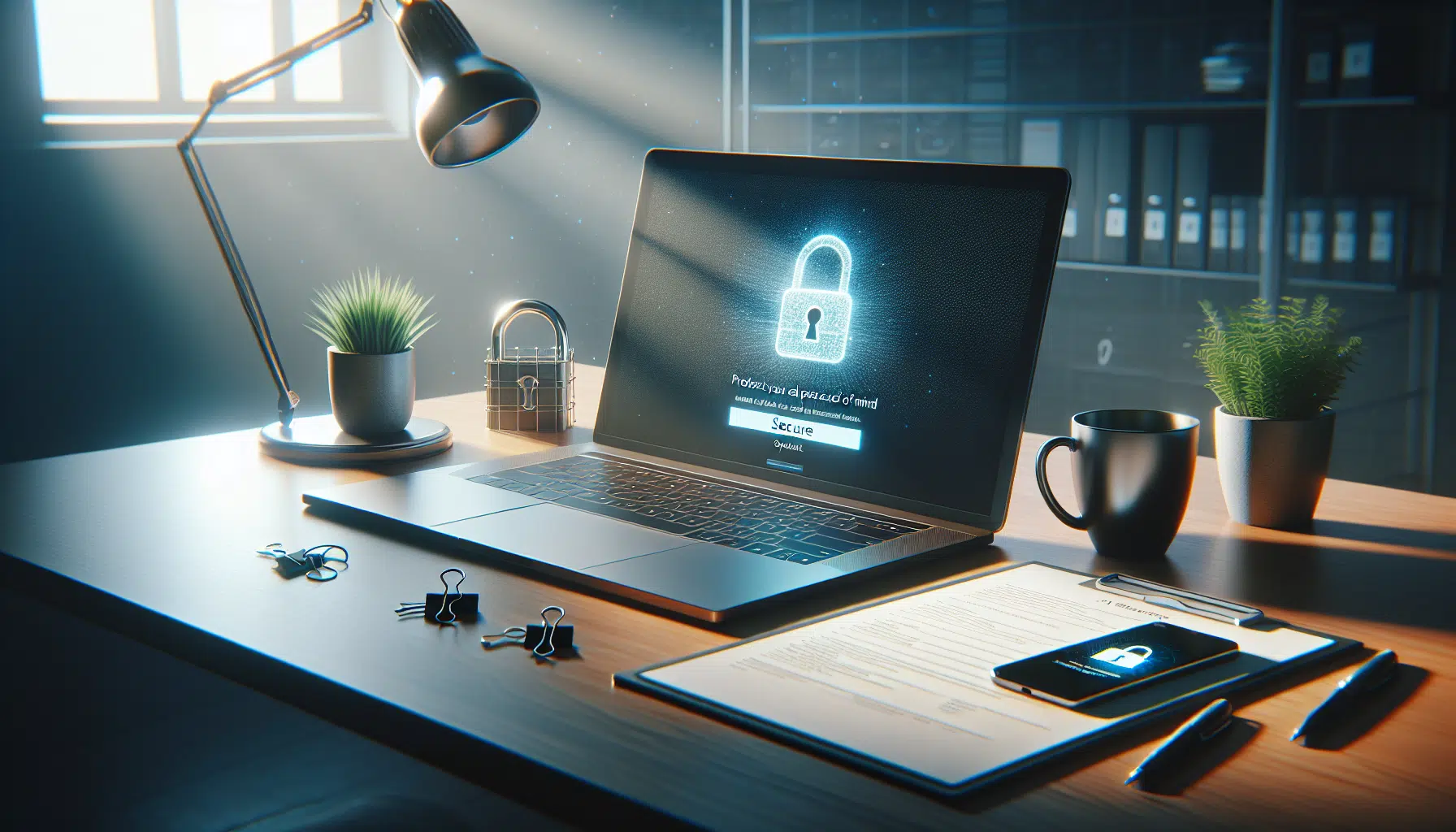Advertisements
In today's digital world, protecting your personal data and maintaining your peace of mind is more crucial than ever. With the growing number of cyber threats, from hackers to malware, it's essential to be well-informed about how to keep your digital security intact. 🌐
Advertisements
In this article, we present 7 foolproof tips to protect your digital securityFirst, we'll address the importance of creating strong, unique passwords for each of your accounts. We'll also discuss why enabling two-factor authentication (2FA) is essential and how this simple measure can add an extra layer of protection.
Next, we'll explore the importance of keeping your software up-to-date. Both your operating system and applications should always be running the latest version to avoid vulnerabilities. We'll also discuss the importance of using virtual private networks (VPNs) when connecting to public Wi-Fi networks, thereby reducing the risk of data interception.
Advertisements
We can't forget the need to be cautious with suspicious emails and messages, one of cybercriminals' most common tactics. We'll also give you tips on how to regularly back up your most valuable information, so you always have a backup in case of loss or attack.
Finally, we'll discuss the importance of continually educating yourself about new threats and how to defend against them. 🌟
These tips will not only help you protect your personal data, but will also give you much-needed peace of mind in the digital world. Read on and discover how to keep your digital security safe with these simple yet effective steps.
Practical Tips to Protect Your Data and Your Digital Peace of Mind
In the digital age we live in, the security of our personal data and our peace of mind are constantly threatened. Staying safe online requires being proactive and aware of potential risks. Here are seven foolproof tips to maintain your digital security and ensure your data is protected.
1. Use Strong and Unique Passwords
A strong password is the first line of defense against hackers. Make sure your passwords are long, complex, and unique for each account. Avoid using personal information such as names, birth dates, or common words. Use a combination of upper and lowercase letters, numbers, and symbols.
Consider using a password manager to generate and store strong passwords, which not only improves your security but also makes managing multiple accounts easier. A password manager can remember all your passwords for you, allowing you to create and use unique passwords for each website without having to memorize them all.
2. Activate Two-Step Authentication
Two-factor authentication (2FA) adds an extra layer of security to your accounts. Even if someone obtains your password, they'll need a second factor (such as a code sent to your phone) to access your account. This significantly reduces the risk of unauthorized access.
Enable 2FA on all accounts that allow it, especially those containing sensitive information like email, bank accounts, and social media. This extra measure may seem a bit annoying at first, but the added security is worth it.
3. Keep Your Software Updated
Software updates not only bring new features but also fix security vulnerabilities. Make sure to keep your operating system, web browser, and all the applications you use up to date.
Set your devices to automatically install updates. This includes your computer, smartphone, and any other internet-connected device. Regular updates are essential to protect you against the latest threats.
4. Be Cautious with Emails and Links
Phishing is a common technique used by cybercriminals to trick you into obtaining your personal information. Be wary of emails and messages that ask for sensitive information or direct you to suspicious websites.
Never click on links or download attachments from unknown senders. Always verify the authenticity of the sender and, if in doubt, contact the company or individual in question directly through an official channel.
5. Use a Virtual Private Network (VPN)
A VPN encrypts your internet connection, protecting your information from prying eyes. This is especially important when using public Wi-Fi networks, which are more vulnerable to attacks.
Using a VPN not only protects your sensitive data, but it can also help you maintain your online privacy by hiding your IP address and location. There are many VPN options available, both free and paid, that can suit your specific needs.
6. Make Backups Regularly
Backing up your data regularly ensures that you won't lose important information in the event of a ransomware attack, system failure, or any other emergency.
Store your backups in a secure location, preferably offline or on a trusted cloud storage service. Schedule automatic backups so you don't have to manually remember to do them, and make sure they include all critical data.
7. Educate Yourself and Others
Education is one of the most powerful tools for protecting your data. Stay informed about the latest threats and security best practices. Share your knowledge with friends, family, and colleagues to help them stay safe, too.
Take cybersecurity courses, follow specialized blogs and podcasts, and stay up-to-date with technology news. The more you know about the risks and how to mitigate them, the better prepared you'll be to protect yourself and others.
—

Conclusion
With the increasing reliance on technology in our daily lives, protecting our digital data has become more crucial than ever. By following the seven foolproof tips mentioned above, you can ensure your digital security is always safe. Implementing strong passwords, regularly updating your devices and software, being cautious with suspicious emails, using two-factor authentication, maintaining backups, monitoring your accounts, and continually educating yourself about new threats are essential practices for keeping your personal information out of the hands of cybercriminals.
Don't underestimate the importance of each of these measures. Protecting your data not only safeguards your personal information but also your peace of mind. Living in a secure digital world allows you to focus on what really matters, without the constant worry of being a victim of identity theft or having your data compromised.
Remember that digital security is an ongoing process. Threats are constantly evolving, so it's essential to stay informed and adaptable. Implementing these tips will give you a solid foundation, but staying up-to-date with the latest cybersecurity trends and threats is equally crucial.
Source Links
National Cybersecurity Institute (INCIBE)




